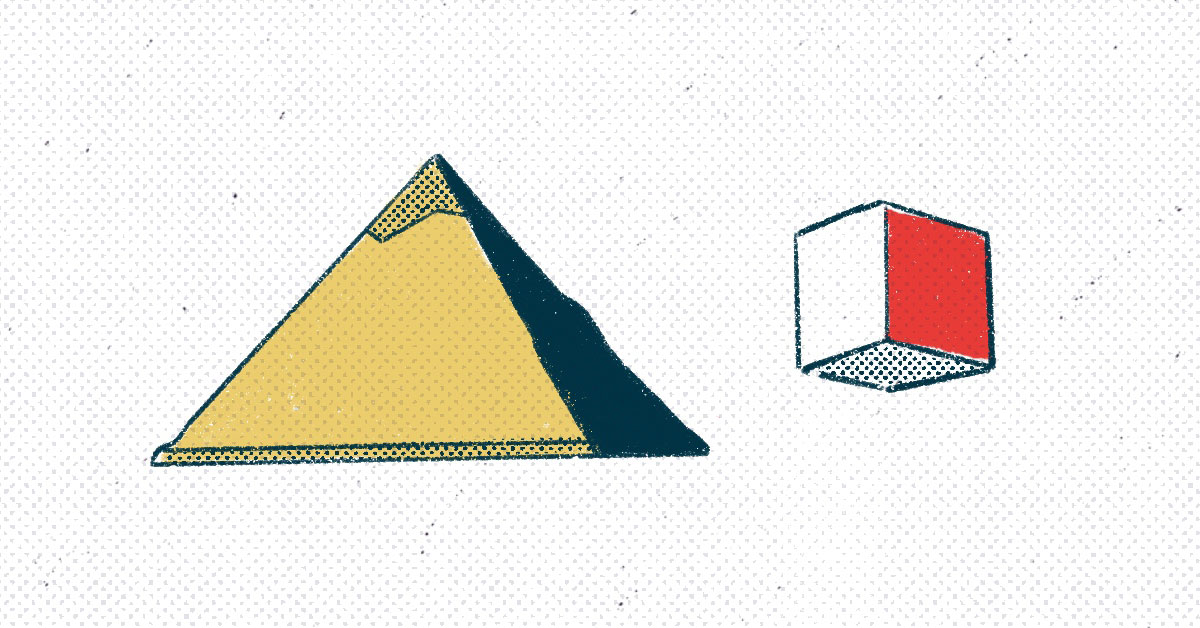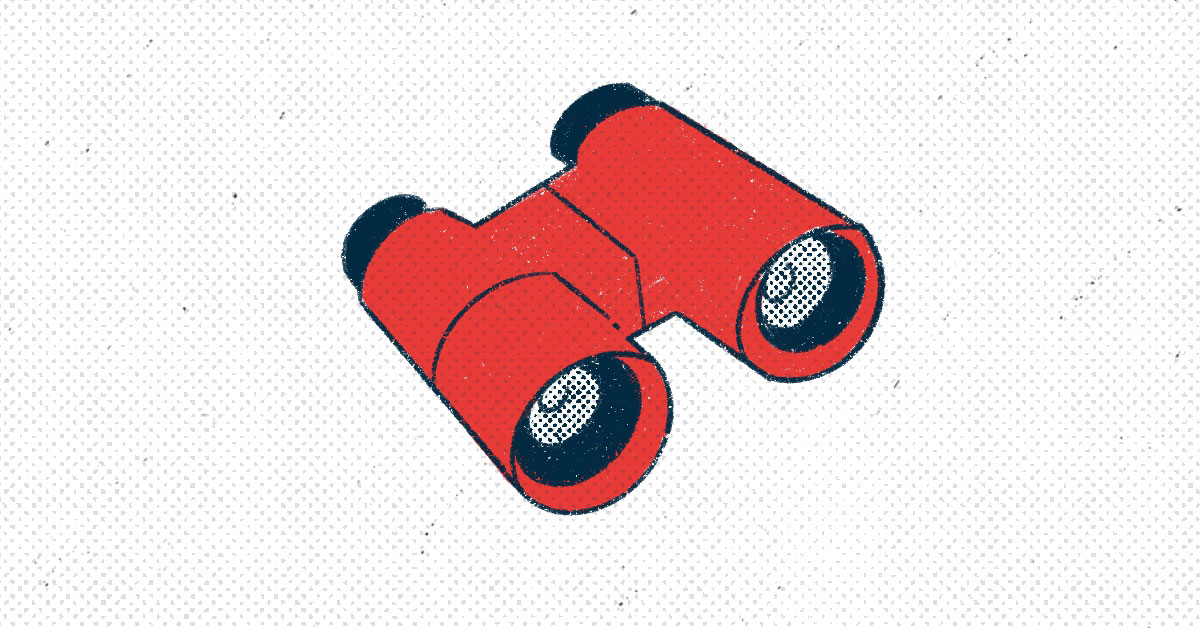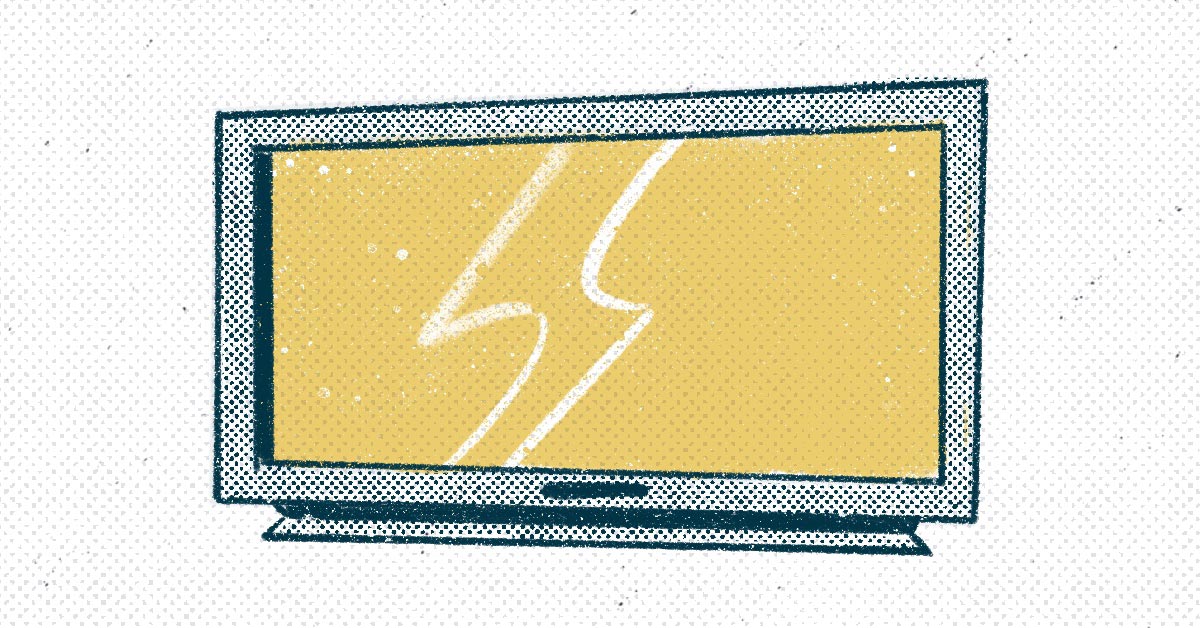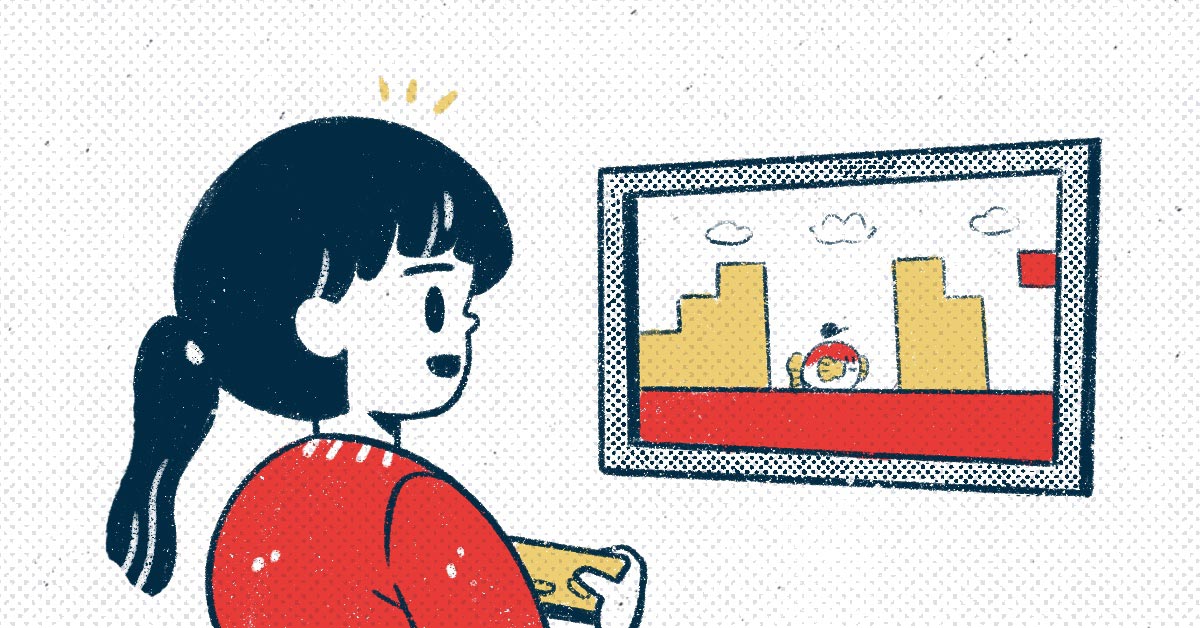The word 面 (めん) means "face," "mask," or "surface," and the Japanese counter 面 is usually used to count masks, surfaces, and things that have a surface. And thanks to one of the meanings expanding, you can even count the stages of games with it.
Before learning all about 面, please take a quick look at the table below to make sure you've got the pronunciation right. (Or if this is your first time learning about counters, check out our beginner's guide.)
- Pronunciation of the Japanese Counter 面
- How to Use the Counter 面
- End of Side One, Please Flip Tape Over
Pronunciation of the Japanese Counter 面
| Numeral | Japanese | Reading 1 | |
|---|---|---|---|
| 1 | 一面 | いちめん | |
| 2 | 二面 | にめん | |
| 3 | 三面 | さんめん | |
| 4 | 四面 | よんめん (しめん) | |
| 5 | 五面 | ごめん | |
| 6 | 六面 | ろくめん | |
| 7 | 七面 | ななめん (しちめん) | |
| 8 | 八面 | はちめん | |
| 9 | 九面 | きゅうめん (くめん) | |
| 10 | 十面 | じゅうめん | |
| 11 | 十一面 | じゅういちめん | |
| 12 | 十二面 | じゅうにめん | |
| 100 | 百面 | ひゃくめん | |
| 1,000 | 千面 | せんめん | |
| 10,000 | 一万面 | いちまんめん | |
| How many | 何面 | なんめん |
面 has an m- sound, so none of the pronunciations change when you add numbers before it. Watch out, though: four, seven, and nine can be read with the original kango number readings し, しち and く.
It's also important to remember that some words that use 四面, like 四面体 (しめんたい), which means tetrahedron, or 四面楚歌 (しめんそか), which means being surrounded by enemies, always use the reading し.
How to Use the Counter 面
面 is used to count masks, surfaces, things with surfaces, and game stages. Surfaces include things like those on a cube or some other geometric shape, but what about "things with surfaces?" And what are game stages? Read on to find your precious answers.
Surfaces of a Polyhedron

面 means surfaces, and it can count surfaces of polyhedrons such as triangular pyramids, cubes, quadrangular prisms, frusta, hexahedrons, dodecahedrons, trisoctahedrons, and pentagonal icositetrahedrons. Phew!
- 立方体の面は6面です。
- The number of surfaces a cube has is six.
- 誰かがピラミッドの一面をピンク色に塗った。
- Someone painted one surface of the pyramid pink.
- その名の通り、五角二十四面体には二十四面の面がある。
- As the name suggests, a pentagonal icositetrahedron has twenty-four surfaces.
- この四角錐台の六面の合計面積を求めなさい。
- What is the total area of the six surfaces of this square frustum?
Even the surfaces of things that are not perfect polyhedrons, but are similar to them, such as tent surfaces, building walls, and room walls, can be counted with 面 too.
- テントの三面が泥だらけになった。
- Three surfaces of the tent got muddy.
- 壁の最後の一面は明日完成する予定です。
- The last wall will probably be finished tomorrow.
Masks
The kanji 面 means face or mask. There's some nuance there that implies it's a surface of your body you show to others.
The kanji 面 means face or mask. There's some nuance there that implies it's a surface of your body you show to others. So we know 面 counts masks, but what kind?
It's usually used for the flat masks that cover all one's face, like those used for noh or kyōgen plays, or the character masks you can buy at Japanese festivals.
While masks that only cover your nose or eyes and above (like those used for masquerades) can be counted with 面, in daily conversations it's more common to use 枚 (まい) for these types of masks.
- 五面の能面が壁に飾られていた。
- Five noh masks were on the wall.
- 昨日、狂言の面を三面仕上げました。
- I finished up three kyōgen masks yesterday.
- 今度夫婦で仮面舞踏会に行くんですが、仮面を二面貸してもらえませんか?
- My husband and I are going to a masquerade, and I'm wondering if you could lend me two of your masks.
- お父さんにお祭りでトーフグのお面とワニカニのお面を一枚ずつ買ってもらった。
- My dad bought me one Tofugu mask and one WaniKani mask at the festival.
What about non-flat masks like respirators, gas masks, death masks, kendo masks (face guards), fencing masks, or baseball catcher masks? They can be counted with 面 as well, though it's more common to use the general counters つ and 個 (こ).
- 防毒マスクを十二面用意しておいてくれ。
- Prepare twelve respirators!
- コウイチに剣道の面を五面プレゼントした。
- I gifted five kendo masks to Koichi.
- キャッチャーマスクが一面盗まれているぞ!
- One of the catcher's masks was stolen!
Although it's also flat, the medical masks that only cover your mouth are counted with 枚 (まい) as well.
- 花粉症の時期は、常にマスクを三枚持ち歩いています。
- During hay fever season, I always carry three medical masks.
Binoculars

We count masks that are put over your eyes with 面, and this usage expanded to other things you cover your eyes with, like pairs of binoculars, field glasses, and eventually even opera glasses. That said, it's more common to use the general Japanese counters つ and 個 (こ), or the counter for machines 台 (だい), with them.
- クリスマスプレゼントに双眼鏡を二面もらった。
- I got two pairs of binoculars as Christmas presents.
- 野外用双眼鏡が一台欲しいんです。
- I want a pair of field glasses.
- 引き出しの中にはオペラグラスが三つ入っていた。
- There are three pairs of opera glasses in the drawer.
What about pairs of glasses or sunglasses? They are counted with the counter for thin and long things, 本 (ほん).
- サングラスを三本持っています。
- I have three pairs of sunglasses.
What about telescopes? A telescope does not cover your entire face (anymore, anyway). Normally you're just peeking into the lens with one eye, right? So you count this with 台 (だい), 本 (ほん), or if it's a really big one that had to be installed, you use 基 (き).
- 星を観測するために天体望遠鏡を一台買った。
- I bought a telescope to observe the stars.
Instruments with Surfaces
The counter 面 can be used to count traditional Japanese instruments that have a good amount of surface area, like taiko (Japanese drums), koto (a long Japanese musical instrument that has thirteen strings, resembling a horizontal harp), or biwa (a four- sometimes five-stringed lute played with a large-sized plectrum, which was introduced from China to Japan in the Nara period), though other counters like 台 (だい), 張 (ちょう), 張り (はり) and 個 (こ) could be used as well.
- 太鼓が九面並べられています。
- Nine taiko drums were lined up.
- まだ琴が二面中に残ってるよ。
- There are still two koto left inside.
- そう言って、男は箱から琵琶を一面取り出した。
- After saying that, the man took one biwa out of the box.
Tools with Surfaces
Tools with flat, hard surfaces like mirrors, looking glasses, abacuses, sensu (folding fans), and calligraphy inkstones can be counted with 面, though it's more common to count them with 枚 (まい) and 個 (こ).
- コウイチは自宅の庭から青銅鏡を八面発掘した。
- Koichi unearthed eight bronze mirrors from his yard.
- 姿見を四面使うのはどうでしょう。
- What about using four looking glasses?
- コストコで三面鏡が安売りしてるよ。
- Three-way mirrors are on sale at Costco.
Things with Massive Surfaces

Things with a massive surface, like large monitors, TV screens, large advertisement boards, digital sign boards, large clocks, and solar panels that are often placed on building walls can be counted with 面, though it's more common to count them with 台 (だい) and 枚 (まい).
- トーフグオフィスには、大型テレビが三面ある。
- There are three big-screen TVs at the Tofugu office.
- ソーラーパネル二十面のうち四面が故障している。
- Four of the twenty solar panels are out of order.
- 校舎の裏と表に大時計が一面ずつ設置された。
- Two large clocks were installed, one on the front and one on the back of the school building.
Framed Things
This isn't too common, but framed pictures, framed certificates, framed papers, and framed paintings can be counted with 面. The more common counters for them are 枚 (まい), 個 (こ), and 点 (てん).
- コウイチのデスクの後ろには、額に入った賞状が八面も飾られていた。
- Eight framed certificates were displayed behind Koichi's desk.
- 額に入った絵が三面、床に放置されていた。
- Three framed paintings have been left out on the floor.
Newspaper Pages
一面 is conventionally the "top" news and 三面 is city news.
面 is also used as the ordinal number suffix of newspaper pages. You can simply use them for each page, but 一面 is conventionally the "top" news and 三面 is city news, so they are used as idioms referring to those types of news, even when they aren't actually on those pages.
- 朝刊の二面にトーフグの広告が載っているよ。
- The Tofugu ad is on the second page of the morning paper.
- トーフグの東証上場のニュースは新聞の第一面で報じられた。
- The news of Tofugu being listed on the Tokyo Stock Exchange was reported on the front page of the newspapers.
- いつも三面記事から読むんです。
- I always start reading at the city news.
Board Game Boards
The boards of traditional board games with smooth surfaces, such as shogi and go, are counted with 面.
- 机の上には、碁盤が二面並べられていた。
- There were two go boards side-by-side on the table.
- 無くなった将棋盤四面についての責任はあなたにあると考えざるをえません。
- I must hold you responsible for the four missing shogi boards.
Surfaces in Sports
Surfaces on which people play sports, such as tennis courts, baseball grounds, playing grounds, soccer fields, stadium fields, hockey rinks, skating rinks, boxing rings, and even swimming pools, are counted with 面.
- 月曜日の二時から、テニスコート二面を予約しています。
- I booked two tennis courts on Monday at two.
- 私の両親は、サッカーフィールド三面分の土地を持っています。
- My parents own a piece of land as large as three soccer fields.
- スケートリンク一面を一時間無料で使用できるチケットをもらった。
- I got a ticket that let me use one skating rink for free for an hour.
Game Stages

Since 面 is used to count board game boards and surfaces related to various sports, it has expanded to cover game stages as well. In this case, 面 can either be a counter or an ordinal number suffix.
- このゲームには全部で十八面あります。
- This game has eighteen stages in total.
- そのゾンビゲームの1面は10分でクリアできたよ。
- I could clear the first stage of that zombie game in ten minutes.
- スーパーマリオの三面をクリアするのに手こずった。
- I had a lot of trouble clearing the third stage of _Super Mario_.
Land
You can also count farming fields, rice fields, and other plots of land with 面. The Japanese counter 枚 (まい) is also used for them (they are flat, after all).
- 台風で水田が三面駄目になった。
- Three rice fields were ruined by the typhoon.
- 畑八面のうち、三面の収穫が終わった。
- We finished harvesting from three of the eight fields.
- あそこに使っていない土地が一面あるから、好きにしていいよ。
- I've got a plot of land over there that hasn't been used, so you can use it for whatever.
Sides or Aspects
People can have many sides, situations can have many sides—these are figurative sides, of course—but they are sides. Because this usage is idiomatic, its usage is usually limited to just 一面.
- あなたの性格の意外な一面が知れて嬉しいです。
- I'm glad I was able to discover an unexpected side to your personality.
- 当時は彼女の一面しか見れていなかった。
- I was only looking at one side of her that time.
- コウイチには、トーフグの社長としての真面目な一面と、ダジャレ好きの親父というふざけた一面の、二面性がある。
- Koichi is multi-faceted: on one side you have the serious face of Tofugu's company president, and on the other, the joking face of a man who loves puns.
- ネットには、自分の一面的な考え方を押しつけたがる人が多すぎる気がする。
- I think there are too many people who force their one-sided points of view onto others on the Internet.
- 物事の一面にとらわれすぎるな。
- Don't be swayed by just one side of a matter.
- なんだか一面的な議論になってしまいましたね。
- Somehow it ended up being a one-sided argument.
The Entirety of a Large Area
Finally, we have one more figurative side usage for 面: emphasizing that an area is full of something, that something happened in the entire area, or that you've looked all around the area.
- あたり一面を見渡したが、コウイチの姿はもうどこにもなかった。
- I looked everywhere, but I couldn't find Koichi.
- 気がつくと、あたり一面火の海になっていた。
- I found myself surrounded by an ocean of flames.
- 大きなトンボが、一面のススキの中から飛び去った。
- A large dragonfly flew off, out from a sea of silver susuki grass.
- すごい!空一面、星空だね。
- Wow! The sky is full of stars.
- 桜の花びらで、一面薄ピンク色の絨毯になっていた。
- There was a large carpet of light pink cherry petals.
- その池は、一面色づいた落ち葉で覆われていた。
- The pond was blanketed with colorful leaves.
End of Side One, Please Flip Tape Over
You've completed this side of the Japanese counter series. Please keep flipping through 台, 人, and 時/時間, until you reach the end and become a counter pro! And if this is all new to you, check out the basics of Japanese counters, and then read through our big Japanese counters study list, which covers 350+ counters worth knowing.
-
Cells with multiple entries divided by a
/indicate multiple pronunciations that are equally common. Cells with entries in parentheses indicate that the parenthesized word is an uncommon or archaic pronunciation. ↩
